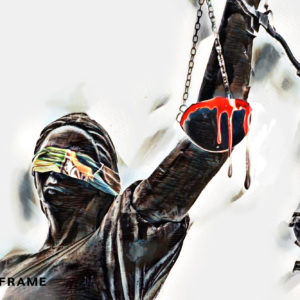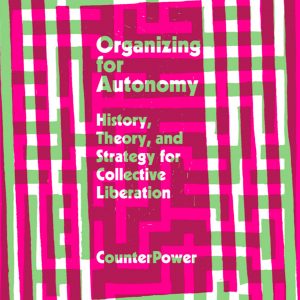Book Review | Poisonous plots
In ‘The Poisoners: On South Africa’s Toxic Past’, Imraan Coovadia shows how politicians use toxins, or the threat of them, to maintain power over activists, whistle-blowers and even pre…
Author:
7 October 2021

William Shakespere’s tragic plays often deal with political ambition and power, in which murder and deception are the tools of statecraft. The English writer was working during the dawn of the modern world, as the European feudal order began to transform into a system of capitalism, settler colonialism and nation states. In this era of intense religious and political upheaval, poison was often used for assassinations, especially by powerful families like the Medicis and the Borgias of Italy, who were rumoured to have used toxic plants and potions to keep their grip on power.
Related article:
Poison also serves as a metaphor for the corrosive influence of unchecked ambition in Shakespeare’s work. In Macbeth, the titular Scottish warlord describes the lust for power as “the ingredients of our poisoned chalice”, and the events that precipitate Hamlet’s final bloodbath unfold after King Claudius poisons his brother.
In his new book The Poisoners: On South Africa’s Toxic Past (Umuzi, 2021), Imraan Coovadia explores the role hazardous substances and clandestine murder plots have played in recent Southern African history, showing how our contemporary political reality is not that far removed from Shakespare’s post-feudal brutality.
The poisoner’s art
Coovadia is best known for his novels, including the historical saga Tales of the Metric System (2014) and the science fiction A Spy in Time (2019). In The Poisoners, he applies a novelist’s feel for character and detail to the shadowy history of the many paranoid politicians, con artists and miscellaneous lowlifes who have turned to the poisoner’s art. Spanning the 1970s to 2020, the book explores how security forces and politicians in South Africa and Zimbabwe use poison and accusations of poisoning to maintain power.
Poison was part of the former Rhodesia’s brutal counter-insurgency war in the 1970s. Toxic weapons killed guerrillas, but they also doubled as agents of psychological warfare – a slow and painful death by poison spread fear and suspicion about spies and infiltrators.
After Zimbabwe gained independence, many of its former leader Ian Smith’s security forces took their dark arts across the border to apartheid South Africa. Toxins became a central part of apartheid’s war machine.
Related article:
The use of biological agents for warfare extended beyond only poison. As part of Ronald Regan’s “constructive engagement” with South Africa, “the US Centers for Disease Control dispatched eight consignments of viruses, including Ebola, Marburg and Rift Valley Fever to Pretoria. The biological agents gave the regime a devastating option, short of nuclear war, against neighbouring states that harboured its enemies.”
Project Coast, a secret apartheid-era weapons programme, focused on using chemical and biological agents in political repression. Along with using poison to assassinate activists and execute political prisoners, the government explored perverse schemes such as creating viruses targeted at specific ethnic groups.
Project Coast’s supervisor, Wouter Basson, saw the research as an opportunity for rampant self-enrichment, using his many crimes against medical ethics to finance a lifestyle of private jets and European shopping sprees. Even by the cynical standards of South African history, Basson is a venal figure. Yet he still continues to practise medicine in the Western Cape, despite an attempt to get his medical licence recalled. As Coovadia convincingly argues, Basson was allowed to escape justice only after a biased trial in the early 2000s, presided over by a pro-apartheid judge.
Toxic presidents
Poison continued to influence the course of politics after 1994. The book shows how Thabo Mbeki’s embrace of conspiracy theories about HIV/Aids, including that antiretrovirals were poisoning Africans, had a disastrous impact on health policy.
Aids scepticism and denialism lead to misguided government policy, which contributed to hundreds of thousands of avoidable deaths. It also allowed a host of swindlers and quacks to sell dangerous treatments with state support. “Under Mbeki and [former health minister Manto] Tshabalala-Msimang was a stratum of white and Black poisoners acting under their protection,” writes Coovadia.
A growing atmosphere of sycophancy and self-enrichment within the ANC enabled Mbeki’s policy disasters. Such maladministration became endemic under the scandal-wracked presidency of Jacob Zuma. Allegations of poison plots have followed Zuma’s Machiavellian rise to power and subsequent presidential misrule.
While in exile, Zuma worked his way to the top of Mbokodo, the ANC’s internal security wing, which was implicated in the torture and killing of party members. During the Truth and Reconciliation Commission hearings, it was alleged that Zuma and other Mbokodo members fatally poisoned ANC underground activist Thami Zulu, and then refused to help Zulu’s parents with their investigation into his suspicious death.
Related article:
As president from 2009 until he was forced to step down in 2018, Zuma regularly maintained that there was a nefarious global plot against him. He also alleged that one of his wives, Nompumelelo Ntuli, was responsible for poisoning him after her affair with a bodyguard, whose family believes died in mysterious circumstances. Zuma’s minister of state security forcibly evicted his estranged spouse from Zuma’s home in Nkandla. Ntuli vigorously denied these allegations.
Zuma sought medical treatment in the United States in 2014, but then decided he was at risk of being poisoned by the Americans. He went to Russia instead. As Coovadia demonstrates, there is very little hard evidence to suggest these plots were ever real. But they were politically expedient. As evidence of Zuma’s corrupt relationship with the Guptas and destruction of state institutions became overwhelming, he launched a propaganda campaign to present himself as a populist defender of the downtrodden.
Despite a craven political career, Zuma now suggested that unnamed US and European interests attempted to poison him because of his support for the Brazil, Russia, India, China, South Africa (BRICS) trading bloc. Public supporters backed his claims, with the former bank robber Gayton McKenzie writing a book, Kill Zuma: By Any Means Necessary, about these alleged plots.
Related article:
The shadow of Zuma’s presidency continues to haunt South African politics. This is a style of statecraft in which power relies on propaganda and misinformation in the press as well as on clandestine violence, including assassinating political rivals and corruption whistle-blowers.
Deputy President David Mabuza was in Russia earlier this year seeking treatment for an alleged and undisclosed poison plot, arguably revealing both paranoia and a lack of imagination. But there are also reports that these Russian sojurns may be more about the construction of costly and potentially dangerous nuclear power plants in South Africa than about health.
The Poisoners is a grimly compelling read that highlights how both poison and paranoia about it are central to how power works in the politics of Southern Africa. To truly flourish, democracy demands openness and transparency. Poison is the toxic antithesis of this, an invisible weapon used under the cover of rumour and secrecy.




